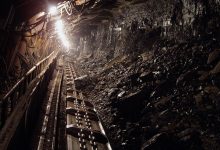New research has detailed mining conglomerate Adani Group’s plans for a massive expansion of fossil fuel production – just as it launches a new campaign to convince children to act on climate change.
New analysis published by advocacy group Market Forces has detailed how the Adani Group is set to massively expand its investments in new fossil fuel projects, including new coal mines and a doubling of its fleet of coal-fired power stations.
This expansion includes increasing its coal generation capacity from 12GW to 24GW through the construction of six new power stations, which would see Adani amass a fleet of coal generation capacity larger than Australia’s fleet of thermal power stations.
To fuel this expansion, Market Forces estimates that Adani’s plans to grow its coal mining operations would see it produce as much as 132 million tonnes of additional coal annually.
At the centre of this plan is Queensland’s Carmichael coal mine. Adani, which rebranded as Bravus Mining in Australia, recently produced its first coal from the Carmichael coal mine, and production will eventually grow to 60 million tonnes annually.
The controversial project that will become one of Australia’s largest coal mines once fully operational, and won the eager support of both federal and state governments.
Pro-coal advocates, including many within the Morrison government, have argued that the increased production of Australian coal could lead to an overall reduction in global emissions, claiming that Australian coal is of higher quality and produces lower emissions compared to coal sourced elsewhere around the world.
But the research, based on Adani’s corporate reports, shows that the exports of Australian coal are underpinning a massive expansion of Adani’s greenhouse gas footprint through the increased use of coal and locking in higher emissions for potentially decades into the future.
The release of the research by Market Forces comes as Adani launches a new campaign website aimed at presenting the company as being concerned about environmental sustainability – but without the company making any commitments of its own to limit its environmental impact (and promotes the company’s coal and gas businesses).
The ‘I-Can’ campaign launched by Adani focuses on individual actions that children can take – including reducing meat consumption and avoiding purchases of ‘fast fashion’ – pitching climate change as an individual problem rather than one caused by the actions of major corporations, like Adani.
“Fast fashion items are use-and-throw, and when they get discarded with regularity, they contribute immensely to producing methane gas in waste landfills,” the Adani web site says.
“We can reduce our carbon footprint by buying only sustainable/vintage/recycled clothes and making them last as much as possible. Also, washing clothes in cold instead of warm water can have an immense impact on our carbon footprint.”
“Our shopping habits and overall purchases also contribute to greenhouse gases. Buying less stuff, using recyclable grocery bags instead of polythenes, avoiding as much packaging as possible, buying organic/eco-friendly products and buying only appliances with energy efficient star ratings are some ways to reduce our carbon footprint,” another section of the website, focused on shopping practices, says.
The website includes a section where Adani calls for school students to submit their own ideas about how to tackle climate change.
Australian school-striker, Anjali Sharma, who was part of successful legal proceedings that established that the federal environment minister had a duty of care protect young people from the impacts of climate change, said Adani putting responsibility back onto children was hypocritical.
“Young people will face a harsher future because of companies like Adani – which continue to expand coal despite knowing the damage it will do to my generation,” Sharma said.
“For a coal giant to ask children for ideas to solve this crisis, while they themselves do nothing to decrease their own emissions, is a hypocritical case of greenwashing.”
“Adani pretends to care about future generations, but we already know the solution to stop climate change is to stop coal, oil and gas. Instead of looking to young people to solve their problems, Adani should look in the mirror and cancel all their new coal and gas projects immediately,” Sharma added.
Market Forces said the expansion of Adani’s use of fossil fuels, while promoting a campaign that put responsibility for climate change back on individuals, undermined any attempt by Adani to promote itself as a responsible corporate citizen and one recognised the need to act on climate change.
“The Adani Group’s tagline is ‘growth with goodness’ but ‘growth with greenwash’ would be more appropriate,” Market Force’s Pablo Brait said.
“Adani claims to be a company in transition. But the shocking information we’ve gathered from Adani Group’s own reports shows this is a lie. It’s profoundly hypocritical for a heavily polluting coal giant such as Adani to pretend it cares about climate change while massively expanding its investments in international coal and gas infrastructure.
A particularly stark example of its commitment to consuming coal is Adani’s recent announcement that it would use coal to produce plastics at a new factory under construction in India, a plan that has been slammed by environmental groups for the high level of pollution and greenhouse gas emissions that would be produced by the plant.
Compared to the already emissions intensive production of plastics using petroleum products, using coal to product plastic can lead to as much as three times the amount of greenhouse gas emissions.
Brait added that the fact that the increase use of coal remained central to the Adani Group’s operations into the foreseeable future, the company could expect to see more pressure being imposed by investors that recognised the going use of fossil fuels represented a significant financial risk.
“If you are investing in or arranging bonds for any Adani Group company, you are enabling one of the biggest fossil fuel expansions on Earth,” Brait said. “If Adani’s investors want to have a shred of credibility on climate change then they need to pull their money out of this rogue conglomerate immediately.”










